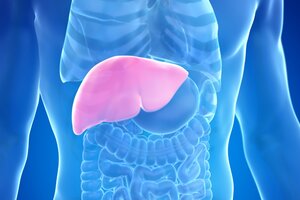Researchers discover a new promising strategy to halt the progression of liver fibrosis
The new work, published in the journal Biomedicine & Pharmacotherapy, has been led by Manuel Vázquez Carrera, head of the research group Pharmacological Targets in Inflammation and Metabolic Diseases at the Sant Joan de Déu Research Institute (IRSJD) and the Biomedical Research Centre in Diabetes and Associated Metabolic Diseases (CIBERDEM) at the University of Barcelona.
Liver fibrosis is a serious complication in the context of metabolic-associated fatty liver disease, also known as MASLD (metabolic dysfunction-associated steatotic liver disease). Currently, liver fibrosis is the most relevant risk factor for predicting both liver disease-related mortality and overall mortality.
MASLD is a global health issue that affects 25% of the world's population. Several studies have shown that this disease often coexists with type 2 diabetes mellitus (T2DM). In fact, T2DM can worsen the progression of MASLD by aggravating both hepatic and extrahepatic problems. At the same time, having MASLD increases the risk of developing T2DM and makes it harder to control glucose levels in individuals who already have diabetes.
'In this study, we analysed how the activation of the nuclear receptor PPARβ/δ influences the development of liver fibrosis and the activation of hepatic stellate cells, which are the main drivers of liver fibrosis, in response to transforming growth factor β (TGF-β), the key stimulus that promotes fibrosis,' explains Professor Vázquez Carrera, from the Sant Joan de Déu Research Institute (IRSJD), the Faculty of Pharmacy and Food Sciences at the University of Barcelona, and the Institute of Biomedicine of the University of Barcelona (IBUB).
A new promising strategy to halt the progression of liver fibrosis
The research results reveal that an agonist (a compound that binds to a specific receptor and activates it) of PPARβ/δ helps prevent glucose intolerance and insulin resistance in peripheral tissues. Furthermore, this agonist prevents collagen accumulation in the liver and reduces the expression of genes related to inflammation and fibrosis in mice that were fed a diet designed to induce liver fibrosis.
'Our findings suggest that activating the PPARβ/δ-AMPK pathway could be an effective strategy to reduce the development of liver fibrosis,' highlights Vázquez Carrera.
The study also showed that, in hepatic stellate cells, the activation of PPARβ/δ inhibits TGF-β-induced cell migration, a key signal in the activation of these cells. In addition, a reduction in the phosphorylation of the SMAD3 protein and in the levels of the coactivator p300, both essential components of the signalling pathway that promotes fibrosis, was observed.
Reference article
Zhang, Meijian; Barroso, Emma; Peña, Lucía; Rada, Patricia; Valverde, Ángela M.; Wahli, Walter; Palomer, Xavier; Vázquez-Carrera, Manuel. «PPARβ/δ attenuates hepatic fibrosis by reducing SMAD3 phosphorylation and p300 levels via AMPK in hepatic stellate cells». Biomedicine & Pharmacotherapy, agost de 2024. DOI: 10.1016/j.biopha.2024.117303.

Liver fibrosis is the most relevant risk factor for predicting both liver disease-related mortality and overall mortality.
